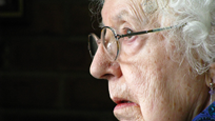As we age, there is a possibility our mental faculties will diminish. Although it can be challenging to think about, there are legal safety measures to protect yourself and your loved ones before they ever have to face life issues in a nursing home, an assisted living facility or an intensive care unit. At the law offices of Slover, Prieto, Marigliano & Holbert, LLC, we help clients throughout Georgia create the health care directives they need to effectively plan for end-of-life medical decisions.
Health Care Directives / Living Wills in Georgia
 Having a health care directive can save family members from the feelings of stress or guilt that may arise when they are called upon to make difficult decisions about the care of their loved ones. Imagine being contacted by the doctor for your mother or father, husband or wife, and being told your loved one won’t get any better. When you’re caught up in the grief and emotion of the moment, the burden of being the decision-maker can make it especially challenging. Having a health care directive can help alleviate some of that pressure, by allowing your loved one to make their decisions in advance.
Having a health care directive can save family members from the feelings of stress or guilt that may arise when they are called upon to make difficult decisions about the care of their loved ones. Imagine being contacted by the doctor for your mother or father, husband or wife, and being told your loved one won’t get any better. When you’re caught up in the grief and emotion of the moment, the burden of being the decision-maker can make it especially challenging. Having a health care directive can help alleviate some of that pressure, by allowing your loved one to make their decisions in advance.
Planning for Future Medical Care
At Slover, Prieto, Marigliano & Holbert, LLC, we understand the importance of building good, lasting relationships with our clients. We draft and review estate planning documents, including wills, trusts, living wills and advance health care directives. We take the time to understand our clients’ concerns and wishes and we make sure they are carefully detailed in the legal documents and estate plans we create. When the time comes, our attorneys also work with estate administrators and beneficiaries to help clients through the probate process.
 Learn more about the representation we offer by contacting our experienced lawyers online or by calling toll-free at 1-855-329-7144 or locally at 404-856-0040. To best meet the needs of our clients, we have offices in Atlanta, Calhoun, Cartersville, Dallas, Dalton and Savannah. Contact us today to schedule your free initial consultation.
Learn more about the representation we offer by contacting our experienced lawyers online or by calling toll-free at 1-855-329-7144 or locally at 404-856-0040. To best meet the needs of our clients, we have offices in Atlanta, Calhoun, Cartersville, Dallas, Dalton and Savannah. Contact us today to schedule your free initial consultation.
SPMH Law, LLC represents clients throughout Georgia and the Southeastern United States. To schedule a free consultation with a lawyer at our firm, call us today or visit our dedicated Nursing Home Abuse website or our firm’s website for more information. Our attorneys have the experience and sophistication necessary to handle your case with the highest degree of competence and care. With years of familiarity handling these complex cases, which should not be trusted to lesser-experienced firms, we work hard to obtain the highest levels of compensation for our clients.
Serving clients in:
Atlanta, Bartow, Cherokee, Cobb, Floyd, Fulton, Whitfield, Douglas, Polk, Chatham and all of Northwest Georgia, North Georgia, Central Georgia and South Georgia, as well as much of the Southeastern United States.












 As the US population ages and birthrates decline, we are beginning to see an increase in the number of geriatric people in nursing homes and assisted living communities. This puts seniors themselves in a vulnerable position and should cause some concern to the adult children and grandchildren of these patients, given the number of horror stories in the media today about nursing home abuse and nursing home neglect. Many of these horror stories were the backbone of many
As the US population ages and birthrates decline, we are beginning to see an increase in the number of geriatric people in nursing homes and assisted living communities. This puts seniors themselves in a vulnerable position and should cause some concern to the adult children and grandchildren of these patients, given the number of horror stories in the media today about nursing home abuse and nursing home neglect. Many of these horror stories were the backbone of many 

